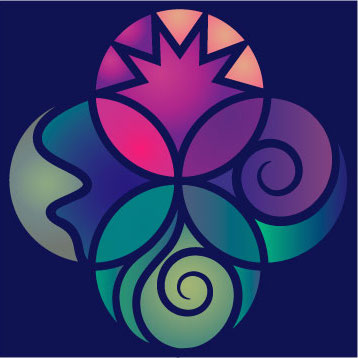Touristic Travail
/My patient was exhausted. “I worked sixty hours last week and eighty hours the week before,” he said. “I walked over one hundred kilometres last week. When I got a day off, I couldn’t get myself to do anything. My partner tried to get me out of bed. I couldn’t walk until five o’clock in the evening, my feet hurt so much.” He was so sleep deprived that he felt intoxicated all the time.
We’ve known for more than a decade now that being awake for too many hours is equivalent to being drunk. I checked that my client wasn’t driving. “I’m not. But I fell asleep twice on the bus yesterday, which is a sacking offence. People have travelled so far to be here and paid so much money. I don’t want to talk to them anymore. I always loved my job but I feel angry and sad now. They pay us by the hour and deduct an hour for a lunch break we never get. I’m due to work a 14-hour day tomorrow and an 18-hour day, the day after.”
His mental and physical health was almost impossible to assess because of his sleep-deprived state. “Have you got any sick leave?” I asked. “Can I give you a few days off to rest? This is not safe.”
Then he started to cry, quietly at first and then uncontrollably.
Photo by Gabriel Barletta.
I work in a tourist area. Many people who come to this magnificent place are living their dreams. Usually, they have paid a lot of money and have high expectations. Unfortunately, some of them think that paying money entitles them to treat working people like machines or to make impossible demands on them.
One of my young clients, a charming woman of Aboriginal and Turkish ancestry, confronts ignorance on a daily basis. Tourists are constantly asking her where she is from and then exclaiming over her Aboriginality. They’re never interested in her Turkish family because they are not interested in anything that interferes with their stereotypes. “I hate it when they want to take photos with me now. So many of them are so rude. They take photos without asking, as if I was an animal in a zoo. Then they ask me where the ‘real’ Aborigines are. It makes me feel like punching them,” she said to me.
Puffer fish affection. Photo by Amy Humphries.
My wife Claudia worked in tourism for decades as a diving instructor. Her life in those slices of paradise that appear routinely in travel brochures would have aroused envy in those who don’t work there. She was fit and golden, her dark curly hair bleached blonde by a life in unrelenting salt water, her shoulders muscled from the hours of diving and swimming. But beneath that surface her work was taking a toll. For years, she had a shoulder injury from hauling a client into a boat at the end of the day once in the Maldives. She has a titanium cage in her neck thanks to hauling air cylinders five times a day. Like my young client, she was psychologically worn down, too. In Claudia’s job, she was expected to drink with guests, entertain them and be entertained by them. The bar staff helped by hiding the alcoholic drinks clients bought for her. After she and her colleagues witnessed a helicopter crash that left a dozen people dead, they were asked not to talk about it – because such things don’t happen in ‘paradise’.
When we are tourists ourselves we learn a lot, sometimes at the expense of local people and their environment. Sometimes it’s through prosaic activities like eating, drinking and washing that we learn how to safely interact with a different cultural environment. Everybody’s seen the young one dressed totally inappropriately in the place she’s visiting — wearing shorts to the temple in Indonesia or impossibly high heels in an African market.
A client of mine who works in house-keeping told me about tourists from a country not far from here, where people have just begun to be able to travel on a significant scale. The country they come from doesn’t use toilet paper — people wash themselves after the toilet, instead of wiping themselves with paper.
Perhaps because they have shallow sewerage pipes, which can’t tolerate paper tissues, visitors from that country put their soiled tissues in a basket next to the toilet. My client has to clean up the faeces-stained refuse. It’s a dirty job. When Australians first started travelling to Asia in large numbers in the seventies, it was the female guesthouse workers who had to clean up after people couldn’t aim well over a squat toilet or who polluted the washing well by bathing in it.
Working woman in Morocco. Photo by Sergey Pesterev.
My client and I discussed the pivotal role of cleaners in public health, especially in a place several thousand people from all over the world visit every day, with all their home-grown or travel-collected bacteria or viruses. I encouraged her to stay strong and well. And to have her hepatitis immunisations.
I appreciate my own work more as I listen to these work stories from our tour guides, coach drivers, the kitchen staff, shop clerks and the cameleers. I imagine their overwhelmed managers, trying to make a system work with too few people and supplies always ‘not here yet’. So many of my patients are struggling. People who are sick get fed up with the hard work expected of them. And people at work get sick, sometimes from their work. In this May Day week, I wish them all health, the wisdom to listen to their bodies, the courage to call a truce. And perhaps some day, our body politic will also find that wisdom and that courage – and housekeepers won’t get sick from their jobs. And tour guides will feel like walking on their days off.
Thumbnail pick of boots climbing by Phil Coffman





